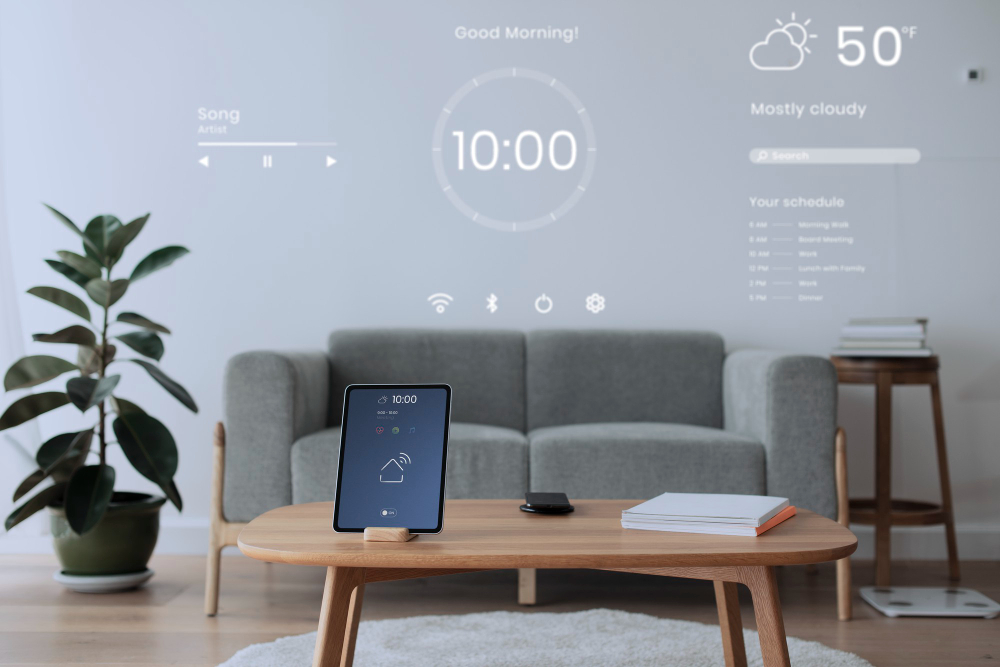In recent years, the concept of a “smart home” has evolved from a futuristic dream into a tangible reality for many households around the world. With advancements in technology and the increasing availability of connected devices, smart home integration has become more accessible and seamless than ever before. From controlling lights and thermostats with a smartphone to managing security cameras and home appliances remotely, the possibilities for enhancing daily life through smart home integration are virtually limitless.
Understanding Smart Home Integration
Smart home integration refers to the process of connecting various devices and systems within a home to a central hub or platform, allowing for seamless communication and control. These devices, often equipped with sensors and internet connectivity, can range from thermostats and lighting systems to security cameras and kitchen appliances. Through the use of Wi-Fi, Bluetooth, Zigbee, or other wireless communication protocols, these devices can interact with each other and with users, enabling automation and remote control functionalities.
Enhancing Convenience and Comfort
One of the primary benefits of smart home integration is the enhanced convenience and comfort it offers to homeowners. Imagine being able to adjust the temperature of your home, turn on the lights, and play your favorite music with a simple voice command or a few taps on your smartphone. With smart thermostats like the Nest Learning Thermostat or the Ecobee smart thermostat, you can create personalized heating and cooling schedules based on your preferences and daily routine, optimizing energy usage and saving money in the process.
Improving Home Security and Safety
In addition to convenience and comfort, smart home integration also plays a crucial role in enhancing home security and safety. With the rise of smart security cameras, doorbell cameras, and motion sensors, homeowners can monitor their properties in real time and receive instant alerts about any suspicious activity. Brands like Ring, Arlo, and Nest offer a wide range of security solutions that allow you to keep an eye on your home from anywhere in the world, providing peace of mind whether you’re at work or on vacation.
Streamlining Daily Tasks and Routines
Another significant advantage of smart home integration is its ability to streamline daily tasks and routines, making household management more efficient and less time-consuming. With the proliferation of smart appliances like refrigerators, ovens, and washing machines, homeowners can automate mundane chores and monitor their devices’ status remotely.
Creating a Connected Ecosystem
As the range of smart home devices continues to expand, there is a growing emphasis on creating a connected ecosystem where different devices can work together seamlessly to enhance the overall user experience. This interoperability is facilitated by platforms such as Amazon Alexa, Google Assistant, and Apple HomeKit, which serve as central hubs for controlling and managing various smart devices through voice commands or mobile apps.
By leveraging these platforms, homeowners can create customized routines and automation sequences that trigger multiple actions across different devices simultaneously.
Overcoming Challenges and Considerations
While smart home integration offers numerous benefits, it’s essential to acknowledge and address some of the challenges and considerations associated with this technology. Privacy and security concerns, for instance, are paramount, given the amount of personal data that smart home devices collect and transmit. It’s crucial for homeowners to take proactive measures to secure their smart home networks and devices, such as using strong passwords, regularly updating firmware, and enabling encryption protocols.
The Future of Smart Home Integration
Looking ahead, the future of smart home integration promises even greater innovation and advancement, driven by ongoing developments in artificial intelligence, machine learning, and the Internet of Things (IoT). As technology continues to evolve, we can expect to see increasingly intelligent and autonomous smart home systems that anticipate and adapt to users’ needs and preferences in real time.
In conclusion, smart home integration represents a transformative shift in the way we interact with and manage our living spaces, offering unprecedented levels of convenience, comfort, and efficiency. By harnessing the power of connected devices, platforms, and ecosystems, homeowners can create personalized and intelligent environments that enhance their daily lives in meaningful ways. As technology continues to evolve, the possibilities for smart home integration are limitless, shaping the future of home living for generations to come.

